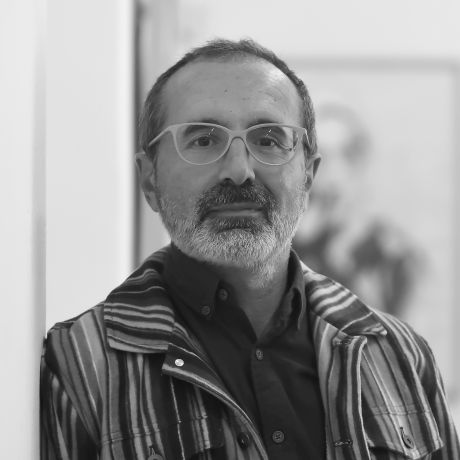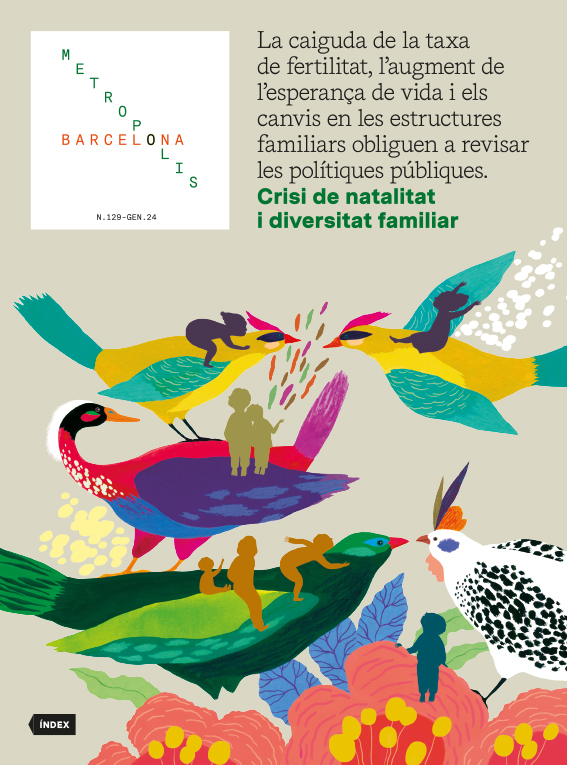Evolving fatherhoods: Men on a journey of transformation
Birth rate crisis and family diversity
- Dossier
- Jan 24
- 11 mins

The redefinition of fatherhood opens up optimistic possibilities but raises some questions. Why do men receive praise for assuming responsibilities traditionally shouldered by women, responsibilities that have historically lacked recognition? Could we be inadvertently perpetuating a “mystique” around new fatherhoods that, once more, reinforces men’s privileged positions? It’s about changing the rules of the game to build a truly equal democracy.
Last year, the writer Andrés Neuman published Umbilical, a beautifully titled book, in which he articulated the experience of fatherhood, shedding light on its role in a narrative historically dominated by the female perspective. In an interview coinciding with the book’s launch, he expressed, “I have listened to many mothers to broaden my own role, which, while distinct from the mother’s, is closer, more intimate, and instinctive than I had imagined. Men are currently engaged in a phase of active listening, of listening attentively, aimed at gleaning a more precise and equitable understanding of women’s roles and multiple experiences, enabling us to redefine our own”.[1]. This redefinition process has recently come to the fore thanks to various publications delving into the essence of fatherhood[2]. The media’s has also shown interest in these “new fatherhoods”, inevitably sparking the emergence of a distinct market niche[3]. At the same time, there is a surge in proposals for activities, conferences and events emphasising concepts such as positive fatherhood[4].
These developments are unfolding in a landscape in which feminist progress is triggering a global response and a dangerous reactionary discourse fuelled by the far right. This discourse is casting a renewed shadow of misogyny over the “manosphere”[5]. The growing awareness of equality is shaking the foundations of the patriarchal order and macho culture, leaving a majority of men navigating with a broken compass[6].
While a substantial sector chooses complacent passivity, a growing number – hopefully – are actively engaged in dismantling internalised misogyny. Within this latter group, many men openly acknowledge that the experience of fatherhood has been instrumental in prompting self-reflection.
Public authorities have played a pivotal role in driving these transformations. While, over an extended period, the concept of “reconciliation” burdened women with the responsibility of balancing work and family life, the objective of shared responsibility has gradually gained traction. In this regard, the lengthening of paternity leave to match maternity leave represents noteworthy progress[7], notwithstanding the evident shortcomings of the model[8].
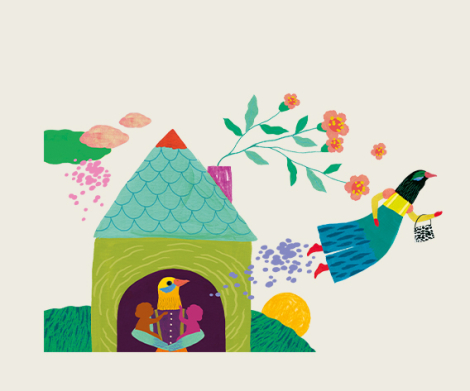 Illustration ©Mariona Cabassa
Illustration ©Mariona CabassaThe figures support this claim: during the first six months of 2023, the Social Security system processed 231,775 allowances for birth and childcare, with 109,731 designated for the first parent, typically the mother, and 122,044 for the second parent, usually the father[9]. However, this encouraging trend becomes less evident when considering the figures for childcare leave: in the first half of the year, only 15.45% of men applied for such leave, compared to 84.55% of women. Incidentally, these figures closely mirror those related to leave taken for the care of elderly and/or dependent individuals.
The new protagonists
A comprehensive understanding of this reality calls for acknowledging the heightened job insecurity experienced by women, the feminisation of sectors with less social and economic recognition, and the evidence of how motherhood is still an obstacle to forging a successful professional career. These difficulties are further magnified in single-parent households, typically comprising a mother and her children.
By factoring in the struggles encountered by younger individuals in securing stable, quality employment or obtaining decent housing, we create the perfect combination of circumstances explaining the rising trend of women and couples opting not to have children. It is intriguing, therefore, that during a period when fewer children are being born, the spotlight is directed towards these “new” parents.
In this manner, we once again take on the role of protagonists, taking centre stage and receiving public recognition. In this regard, it should concern us that men receive so much praise simply for assuming responsibilities that women shouldered without receiving due recognition. Moreover, we wonder whether an individual transformation, often centred on emotions and on the burdens that patriarchy also imposes on us, is enough. Could be inadvertently perpetuating a kind of “mystique” around new fatherhoods that, once again, reinforces men’s privilege?[10]
The positive changes in family structures in recent years are undeniable, including those stemming from a greater presence of fathers striving to overcome traditional absences. It’s essential to recognise how men have been embracing emotional and caregiving aspects that were historically denied to us. Many of these aspects come into play when navigating the uncharted territory of parenthood.
Achieving genuine progress toward comprehensive parity is improbable unless we reassess our production model and prioritise the sustainability of life at the heart of political discourse.
Nonetheless, we continue to embrace predominantly individual, often emotion-centred and self-focused responses when confronted with structural challenges associated with the framework of labour relations, time organisation and value distribution. In other words, these are fundamentally political issues, calling for collective action and a commitment that transcends individual intent. Achieving genuine progress toward comprehensive parity in both the public and private realms is improbable unless we reassess our production model and prioritise the sustainability of life at the heart of political discourse.
A significant challenge lies ahead, which is the major revolution yet to unfold in societies that are increasingly aging and have a growing number of dependents in need of care for an extended period. This horizon seems to be missed by the “new” masculinities, who care about taking their children to the park but appear less committed to easing the loneliness of our elderly.
Hence, we must cultivate a new intelligence capable of addressing the complexities of the present while dismantling the hierarchical gender order. The pathway for women should not be assimilation into hegemonic masculinity, and likewise, for men, it shouldn’t be a sole retreat into emotional subjectivity. Both men and women are misguided if they fail to recognise that this is about changing the rules of the game, transcending hierarchical relationships, and deconstructing male and masculinised powers. In essence, this involves progressing beyond formally equal democracies to make them genuinely gender equal. This transition is inherently revolutionary and, naturally, necessitates caring men and engaged fathers. However, it also urgently calls for more than just therapies and positive sentiments. What is needed is a public and collective commitment to forge a new social contract. It requires an increase in democracy and an expansion of the social state. And, of course, it advocates for less normative masculinity, encouraging more men to share responsibilities, but most importantly, fostering an anti-machismo and egalitarian ethos.
References
Bacete, R. Papá. Planeta, Madrid, 2021.
González López, M. J. Padres y madres corresponsables: una utopía real. La Catarata, Madrid, 2015.
Lorente Acosta, M. La refundación del machismo. Editorial Comares, Granada, 2023.
Marrades Puig, A. (coord.). El reconocimiento de los derechos del cuidado. Tirant lo Blanch, València, 2023.
Neuman, A. Umbilical. Alfaguara, Barcelona, 2022.
Pazos Morán, M. Contra el patriarcado. Economía feminista para una sociedad justa y sostenible. La Catarata, Madrid, 2018.
Salazar Benítez, O. La vida en común. Galaxia Gutenberg, Madrid, 2021.
Sanfélix Albelda, J. La brújula rota de la masculinidad. Tirant lo Blanch, València, 2020.
Shapiro, J. Cómo ser un padre feminista. Plataforma Editorial, Barcelona, 2022.
Zambra, A. Literatura infantil. Anagrama, Barcelona, 2023.
[1] Sánchez Seoane, L. “Andrés Neuman publica Umbilical: ‘Quería mostrar el tipo de vínculo que se establece con el padre antes de nacer’” [Andrés Neuman publishes Umblical: “I wanted to show the kind of bond established with the father before birth”]. El Independiente. 2022. via.bcn/6ujp50Q3thf
[2] Among various works, the recent publications by Ritxar Bacete (Papá [Father], 2021), Jordan Shapiro (Cómo ser un padre feminista [How to Be a Feminist Father], 2022) and Alejandro Zambra (Literatura infantil [Children’s Literature], 2023).
[3] For example, “Paternidades de hoy en día: afectivas, responsables y equitativas” [Contemporary Fatherhoods: Affectionate, Responsible, and Equitable] (Cuesta Torrado, S. El País. 2021). via.bcn/ymJm50Q3tqx
[4] For example, the seminars organised by the Basque government in 2016 under the title “Paternidades que transforman” [Transformative Fatherhoods]. via.bcn/MA3A50Q3twT
[5] See the report Jóvenes en la manosfera. Influencia de la misoginia digital en la percepción que tienen los hombres jóvenes de la violencia sexual [Young People in the Manosphere: Influence of Digital Misogyny on the Perception of Sexual Violence by Young Men] (Centro Reina Sofía sobre Adolescencia y Juventud [Reina Sofía Centre on Adolescence and Youth], 2022. via.bcn/4nNf50Q6RvM) and the book La refundación del machismo [The Refoundations of Machismo], by Miguel Lorente.
[6] Sanfélix, J. La brújula rota de la masculinidad [The Broken Compass of Masculinity] (Tirant lo Blanch, 2020).
[7] This benefit became effective on 1 January 2021, marking the full equalisation of maternity and paternity benefits. Currently, both parents are entitled to a 16-week leave, recognised as an individual and non-transferable right. Of these 16 weeks, 6 must be taken immediately after childbirth or a judicial or administrative decision in cases of adoption, guardianship or fostering. The remaining time can be used in successive periods. More recently, Royal Decree-Law 5/2023 introduced new measures aimed at promoting work-life balance, including the right to be absent from work for up to 4 days per year due to urgent force majeure reasons related to family or cohabiting persons. Regarding parental leave, until the child turns 8 years old, the decree specifies that it “shall not exceed a duration of eight weeks, whether taken continuously or intermittently, and can be availed of on a full-time or part-time basis”.
[8]The Platform for Equal and Non-Transferable Birth and Adoption Leave (PPIINA) criticises the compulsory simultaneous use of the first 6 weeks and emphasises the need to reach an agreement with the employer to take the 10 voluntary weeks at a later date. via.bcn/7WFR50Q3u66
[9] Lamoncloa.gob. via.bcn/p6Uk50Q3ucp
[10] The subtitle “Liberando el potencial de los hombres en el cuidado” [Liberating Men’s Potential of Men of Caregiving], accompanying the report Estado de la paternidad en el mundo [State of Paternity in the World] (Promundo, 2019) is interesting. Equally noteworthy is the global MenCare campaign, driven by Promundo and Sonke Gender Justice with the goal of fostering the equitable and non-violent engagement of men and young people in caregiving. via.bcn/ipTH50Q3uoy
Recommended publications
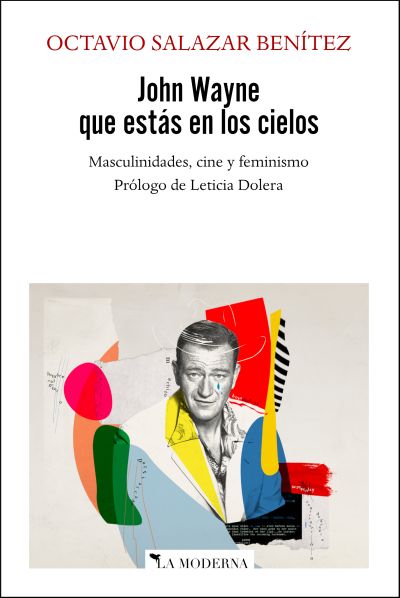 John Wayne que estás en los cielos. Masculinidades, cine y feminismo La Moderna, 2022
John Wayne que estás en los cielos. Masculinidades, cine y feminismo La Moderna, 2022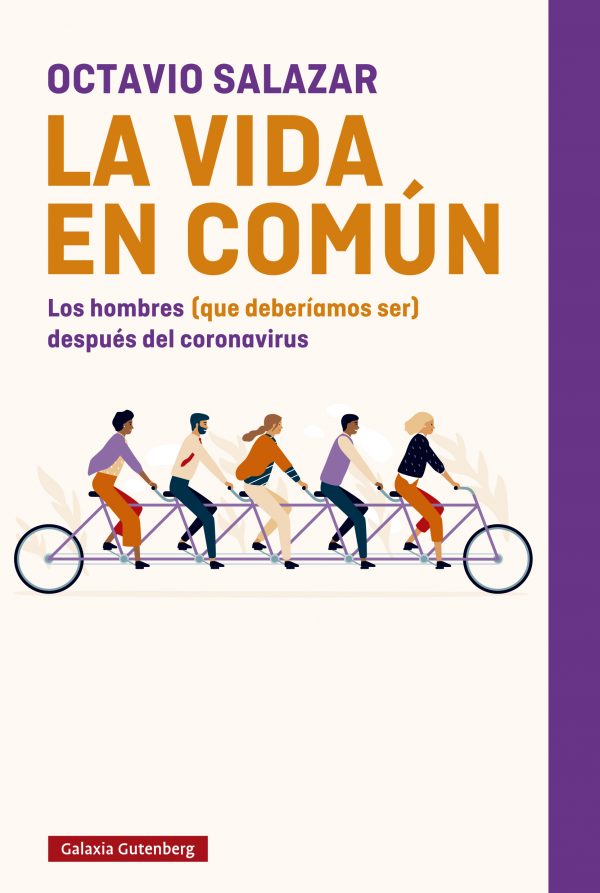 La vida en común Galaxia Gutenberg, 2021
La vida en común Galaxia Gutenberg, 2021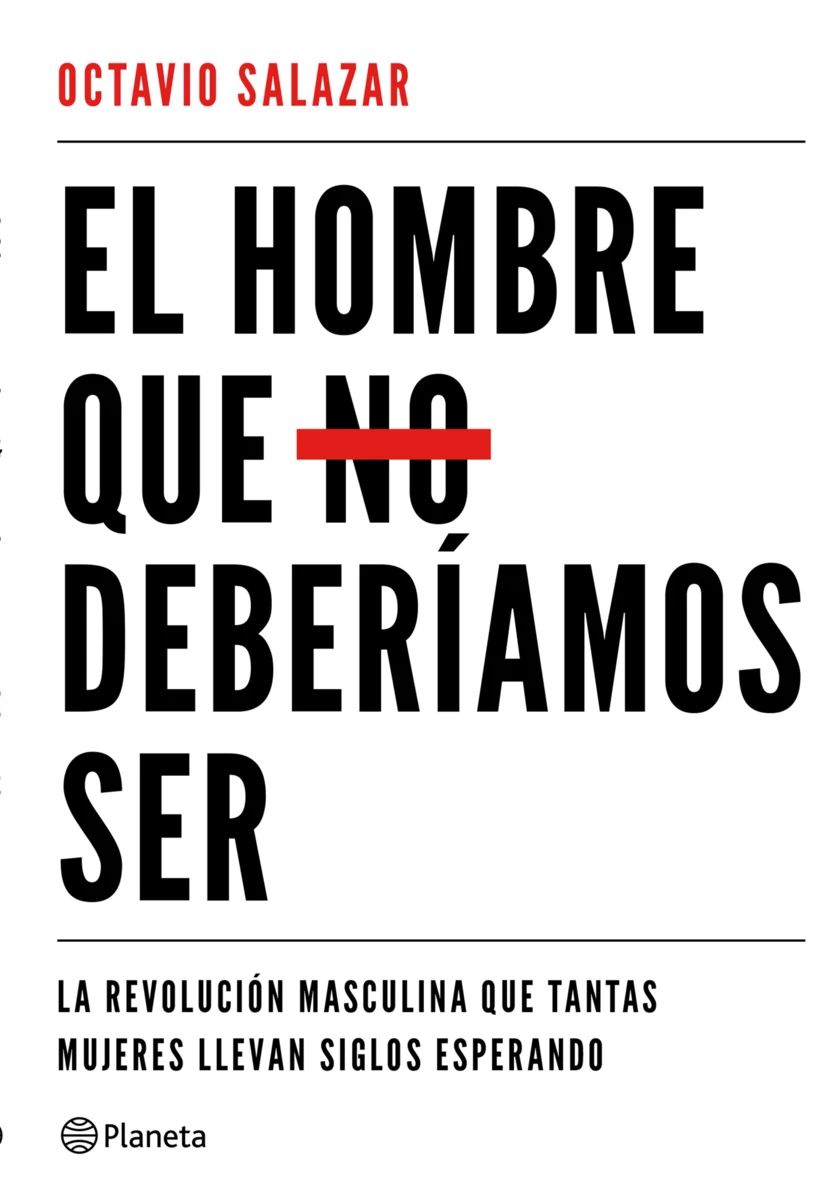 El hombre que no deberíamos ser Editorial Planeta, 2018
El hombre que no deberíamos ser Editorial Planeta, 2018
The newsletter
Subscribe to our newsletter to keep up to date with Barcelona Metròpolis' new developments



